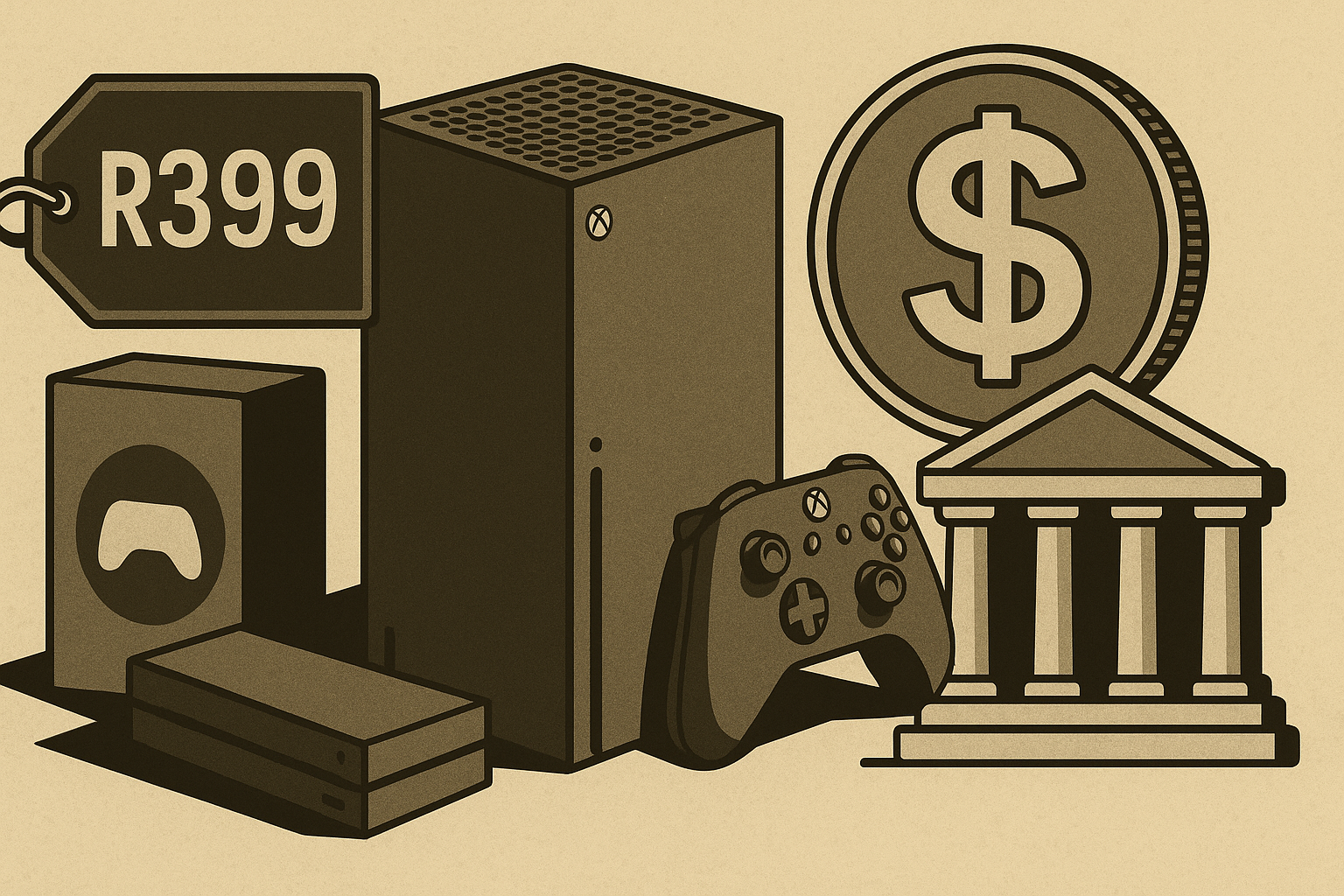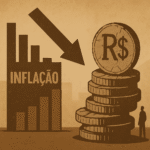It's not Microsoft's fault. It's the State's fault that destroys your purchasing power.
The discharge is a symptom. The disease is in the model.
When Microsoft announced a price increase for Xbox consoles and games, many rushed to blame the market, the dollar or even the companies themselves. But this post shows why the real villain is the State — which, with its interventionism and monetary destruction, turns even digital leisure into a luxury item in Brazil.
We had already warned in the post “Nintendo, price localization and the real problem: it’s not the game, it’s the currency”, where we explain why the problem isn't the game — it's the currency. Here, the logic repeats itself.
Price increases: another predictable chapter
In early May, Microsoft officially announced a price adjustment for its Xbox consoles and games in Brazil. The move follows a pattern already seen with Nintendo and other technology companies, which are facing increasing difficulties operating in a country marked by high taxes, currency instability and an environment hostile to venture capital.
According to Bloomberg Línea, the games could reach R$ 399 at launch, and consoles like the Xbox Series X already surpass R$ 4.000 at some retailers Bloomberg Line. Valor Econômico confirms: Microsoft justified the adjustments based on the global costs and the specific challenges of the Brazilian market Economic Value.
But there is no surprise. There is coherence. As we said in the post about Nintendo, it is not the market that makes the product more expensive — it is the State that makes the country more expensive. See also the post “Game Over on Economic Freedom”, where we show how even the gaming sector suffers from the interventionist setback.
The Truth Behind Pricing: Intervention, Not Market
Popular rhetoric tends to blame foreign companies for rising prices. But anyone who knows the basics of economics knows: final price is the result of a chain of costs and artificial distortions.
Among them:
- Cascading taxation;
- Protectionist import tariffs;
- Customs bureaucracy;
- Artificial exchange rate and monetary inflation.
In countries with strong currencies and institutional stability, such as Japan or the US, console launch prices range between US$ 499 and US$ 599 — similar value for years. In Brazil, the combination of inflation, tariffs and exchange rate weakness converts this same value into more than R$ 4.000, even with partial exemption from ICMS in some states.
The State as a hidden partner in your consumption
The logic is clear: for every R$100 spent on an imported product like a video game, the Brazilian State can take up to R$$ 60 in direct and indirect taxes. Whether through IPI, PIS/COFINS, ICMS or import taxes, the government acts as a hidden — and voracious — partner in each transaction.
There is no greater “corporate greed” than state fiscal greed. And contrary to what protectionist advocates suggest, companies do not flee out of selfishness, but because of unfeasibility.
Weak currency as a driver of impoverishment
Even when the nominal price of a game remains stable in dollars, it explodes in reais. This is because the real is systematically weakened by irresponsible fiscal policies and money printing, as we explained in the post “While the dollar rules, the real obeys”.
You don't have to print bills to destroy a currency — you just have to print deficits.
When entertainment becomes a privilege
The result of all this?
A video game console becomes unaffordable for millions. Games released at R$ 400 become luxury items. But the problem is not expensive entertainment — it is widespread impoverishment.
While the world plays, Brazilians save up to buy a controller.
And all of this under the false banner of “protecting national industry” — which, in practice, protects bureaucrats and corporations connected to power.
Conclusion
The price increase announced by Microsoft is just the visible symptom of a deeper economic disease: the Brazilian State intervenes, taxes and destroys the population's purchasing power — including in sectors that should be accessible, such as digital entertainment.
It is not the market that is failing the consumer. It is the State that sabotages the currency, makes products more expensive and disguises its interventionism as “protection”. The logic of high prices is not corporate. It is state-driven.
📩 Do you want to understand how interventionism affects your pocket — even in your leisure time? Subscribe to the newsletter Economic Radar and receive our analyses directly in your email.


